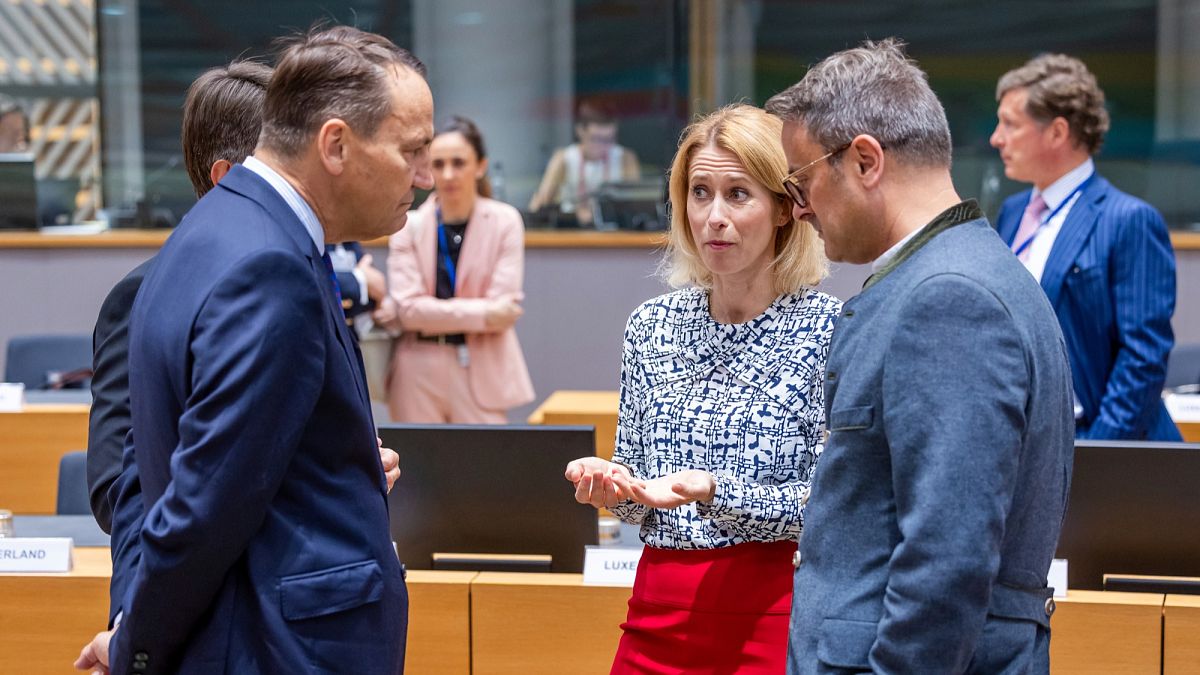

In an interconnected world experiencing an array of complex geopolitical developments, recent events highlight the delicate balance of peace and conflict across different regions. From the tumultuous situations in the Middle East to rising tensions in Eastern Europe, various crises are unfolding simultaneously, calling for mindful engagement and diplomatic attention.
In the Middle East, the European Union is closely monitoring the actions of Israel following a crucial agreement aimed at improving humanitarian aid access into Gaza. The EU’s 27 foreign ministers have collectively agreed to keep an observant stance regarding Israel’s compliance, delaying further discussions on a list of measures that could be implemented in response to the actions in Gaza. This watchful approach underscores the EU’s cautious strategy to manage relations while ensuring humanitarian concerns remain at the forefront.
Meanwhile, Gaza experienced a night of intense airstrikes leading to tragic loss of life and considerable devastation in multiple neighborhoods. The strikes, which left hospitals overwhelmed with casualties, have escalated concerns within the international community over the humanitarian situation and the need for urgent relief efforts. The impact on civilian populations is profound, necessitating immediate humanitarian outreach as well as diplomatic mediation to prevent further deterioration in the region.
Adding to the regional complexity, Israel has conducted bombing raids in Syria and Lebanon. These raids targeted state forces in Syria’s Sweida province following sectarian clashes, and purported Hezbollah targets in Lebanon’s Bekaa Valley, resulting in multiple casualties. The Israeli actions come amid heightened sectarian tensions between Druze minorities and Sunni Bedouins, intensifying existing regional animosities and complicating the geopolitical landscape further.
Over in Syria, violence has flared in the southern province of Sweida, where clashes between Druze and Sunni Bedouins have led to a significant loss of life. The situation escalated following allegations from the Druze leadership accusing government forces of breaking a ceasefire agreement, contributing to a broader pattern of regional unrest. The international community continues to express concern about the sectarian violence and its potential to destabilize the region further.
In Eastern Europe, Russia has launched renewed strikes on Ukraine, intensifying military engagements just a day after a 50-day peace deal ultimatum was announced by former U.S. President Trump. This surge in military activity across a vast front line indicates a strategic push by Russia, employing drones and missiles in an attempt to alter the dynamics of a prolonged conflict. The escalation highlights the fragility of peace efforts and the challenging landscape of modern diplomacy.
In Africa, Sudan is grappling with internal conflict as the paramilitary Rapid Support Forces face accusations of conducting lethal raids in North Kordofan, resulting in the deaths of nearly 300 individuals. Human rights groups have condemned the attacks, which have exacerbated the humanitarian crisis in a country already beset by a civil war. This situation draws attention to the urgent need for conflict resolution mechanisms and an increased focus on humanitarian aid.
Amidst these unfolding events, diplomatic circles remain engaged, seeking pathways to peace and stability. The complexities of each situation require nuanced understanding, collaborative efforts, and international dialogue aimed at mitigating conflicts and safeguarding human lives. As these stories continue to develop, they serve as a poignant reminder of the importance of diplomacy and humanitarian initiatives in a world striving for peace.
Source: {link}
